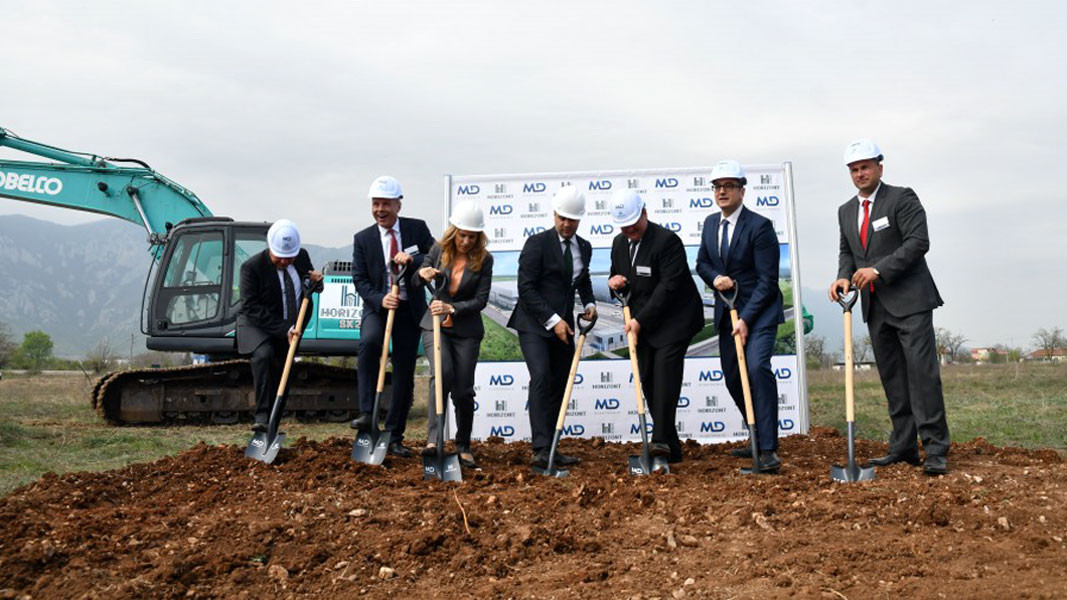Radio Bulgaria starts a series of articles dedicated to the regional imbalances in the Bulgarian economy. Today, we speak with the economic expert from the Institute of Market Economics Adrian Nikolov.
Five Bulgarian regions are among the EU’s poorest regions and Bulgaria’s Northwest region has been for years the poorest region in the whole European Union. This part of Bulgaria is currently in a “perfect cocktail of negative factors”, the economic analyst from the Institute for Market Economics Adrian Nikolov told Radio Bulgaria and specified:
 "We should start with the demographics, because the demographic problem is what keeps the Northwest region at the bottom of the EU rankings the most, even if all other problems are actively addressed. Vratsa, Vidin and Montana are the Bulgarian districts where the speed of population ageing is fastest. It is very difficult to solve the problem related to the deficit of people, including young people, because if a given region is permanently depopulated, it is almost impossible to reverse this trend.
"We should start with the demographics, because the demographic problem is what keeps the Northwest region at the bottom of the EU rankings the most, even if all other problems are actively addressed. Vratsa, Vidin and Montana are the Bulgarian districts where the speed of population ageing is fastest. It is very difficult to solve the problem related to the deficit of people, including young people, because if a given region is permanently depopulated, it is almost impossible to reverse this trend.
Secondly, we should mention the education factor, says Adrian Nikolov.The existence of well-trained, educated and qualified workforce allowed many districts in South Bulgaria to overcome the crises and develop in a positive direction. However, the overall qualification of the people from the Bulgarian Northwest is not aligned with the needs ofthe labor market.
Infrastructure connectivity is the third factor, Adrian Nikolov went on to say. In North Bulgaria, there are some isolated areas with high economic activity, but the lack of adequate infrastructure does not allow them to communicate actively with each other."

When young people do not have the opportunity to study in certain area, they migrate and often do not return to their home places. This factor also influences the demographic structure of the regions. That is why in each Bulgarian region people must be given the opportunity for higher education, if we want to keep the regions, especially those in North Bulgaria, alive, the economic expert contends.
"On the other hand, however, we should take into account the need of adequate and high-quality university education – Adrian Nikolov adds. This is the main problem in most regional universities-what are the qualities, the skills and the qualification of the people graduating from these universities. Even universities such as the Sofia University, the University of National and World Economy and the New Bulgarian University have difficulties in their efforts to compete with other world universities, let alone a small college or university. In fact, most of our professional education has not been reformed yet. It exists, but it does not meet the demand on the labor market and the needs of the local economies.
The emergence of the first large investor is what makes a given region, city or municipality attractive for other big investors as well, Adrian Nikolov explains and shares his impressions from past discussions with investors, commercial chambers, etc:

"The number of companies showing interest in Bulgaria’s Northwest has increased, because low wages were among the key factors that brought many businesses to this country in the past. However, the companies investing in Bulgaria are now struggling to find cheap labor force in most developed cities and regions such as Plovdiv and Stara Zagora in Central South Bulgaria or the coastal city of Burgas for instance. It is sad, but low wages are among the biggest advantages of the Northwest when it comes to attracting new investors, because salaries in this part of the country are still low and the living standard is not than high. That is why many businesses, which are looking for a low-paid and relatively well-educated workforce, may decide to go there."
The Bulgarian Regions in Focus series of articles continue next week with a conversation on the limited administrative capacity in some places, the EU funds absorption and the development of the municipalities.
English version; Kostadin Atanasov
Photos: BGNES and archiveIn the space of 15 years, from 2005 until 2020, 75% of the farms in the country have disappeared – from 500,000 in 2005 down to 132,000 in 2020, said Prof. Dr. Bozhidar Ivanov, Director of the Institute of Agrarian Economics at an international..
In October 2024, the total business climate indicator decreased by 5.6 percentage points compared to September, dropping from 22.5% to 16.9%. The index declined in all monitored sectors, the National Statistical Institute announced. In industry, the..
Petar Ganev , senior researcher at the Institute for Market Economics announced, for the BNR, the publication of their white paper of the Bulgarian economy – Unlocking growth: the road ahead after the election. “Concord should be sought and..

+359 2 9336 661
